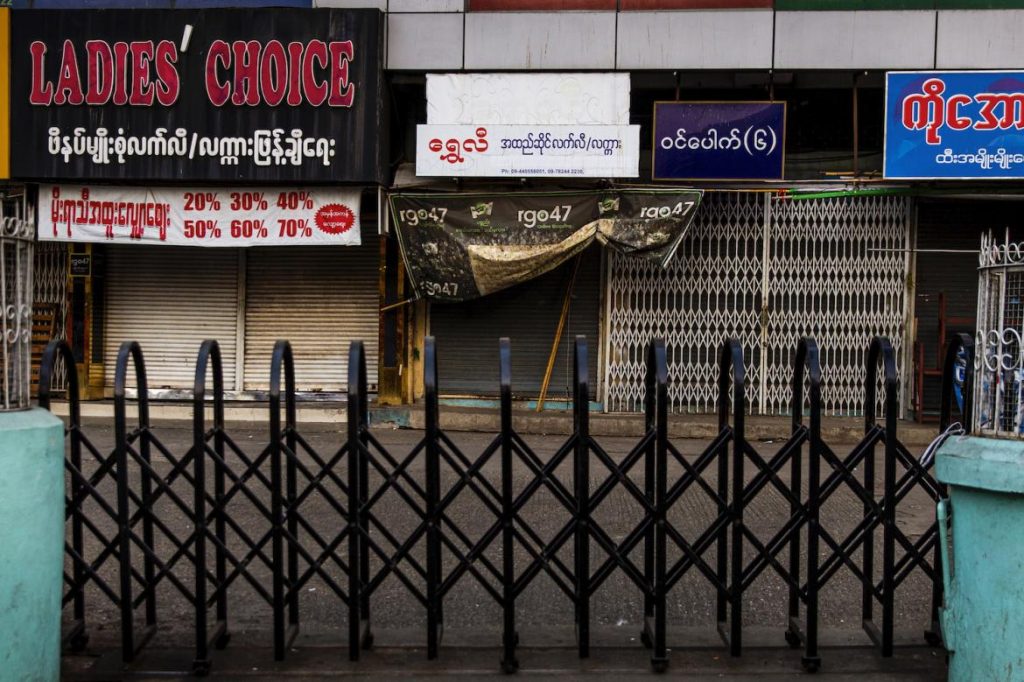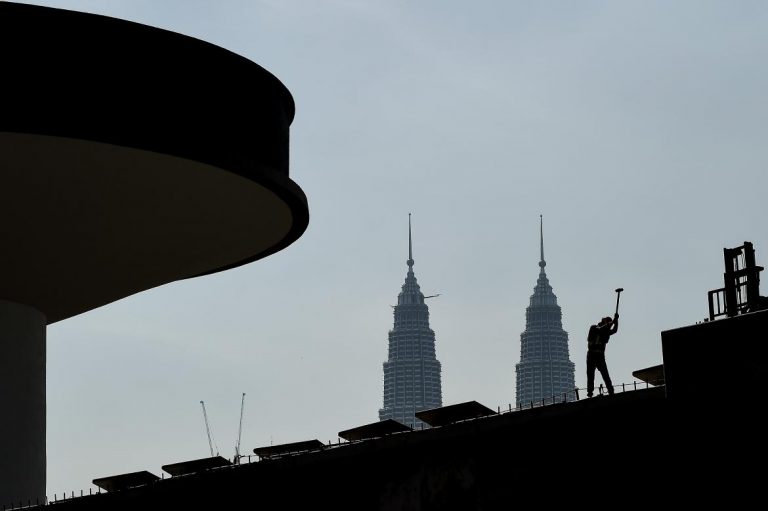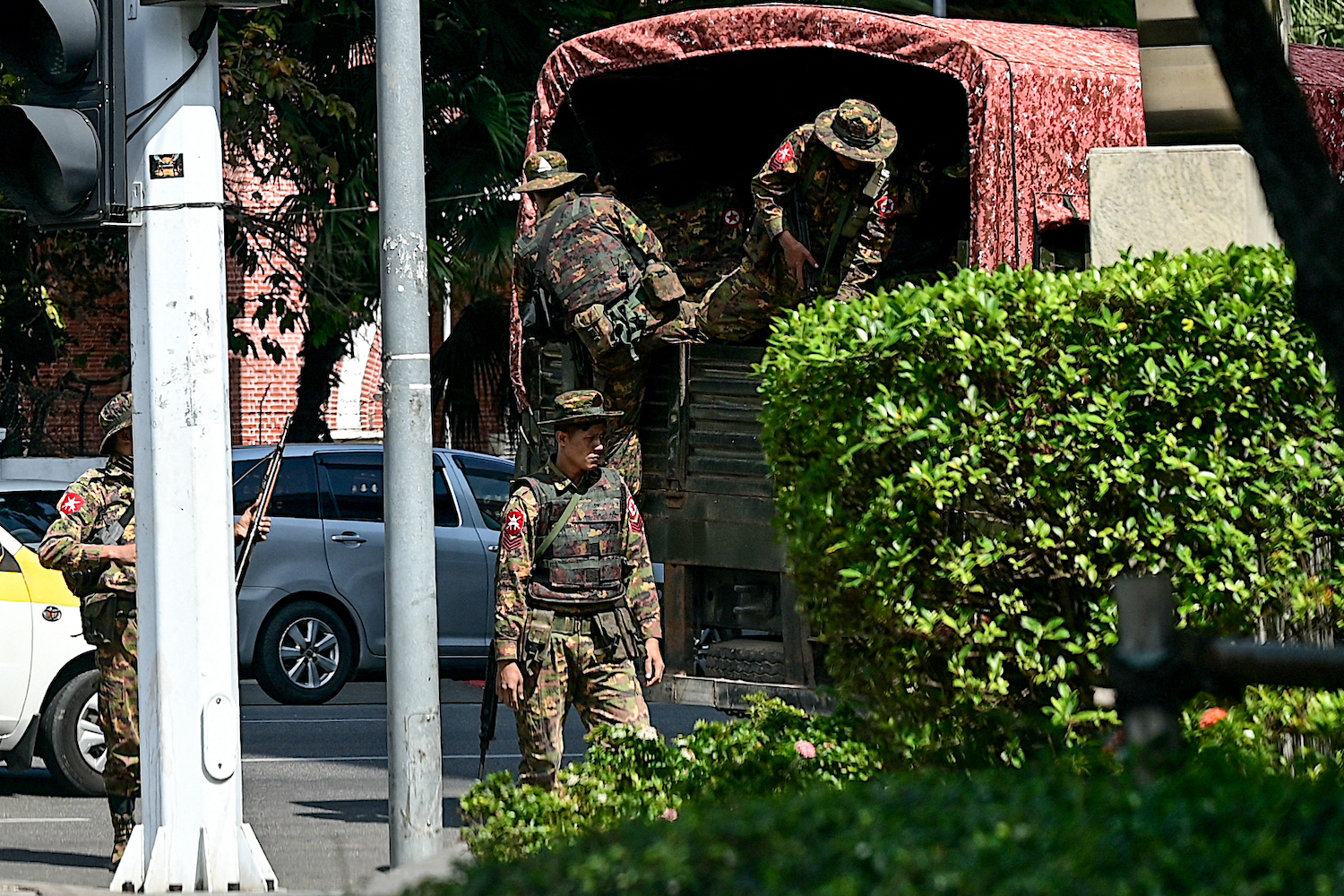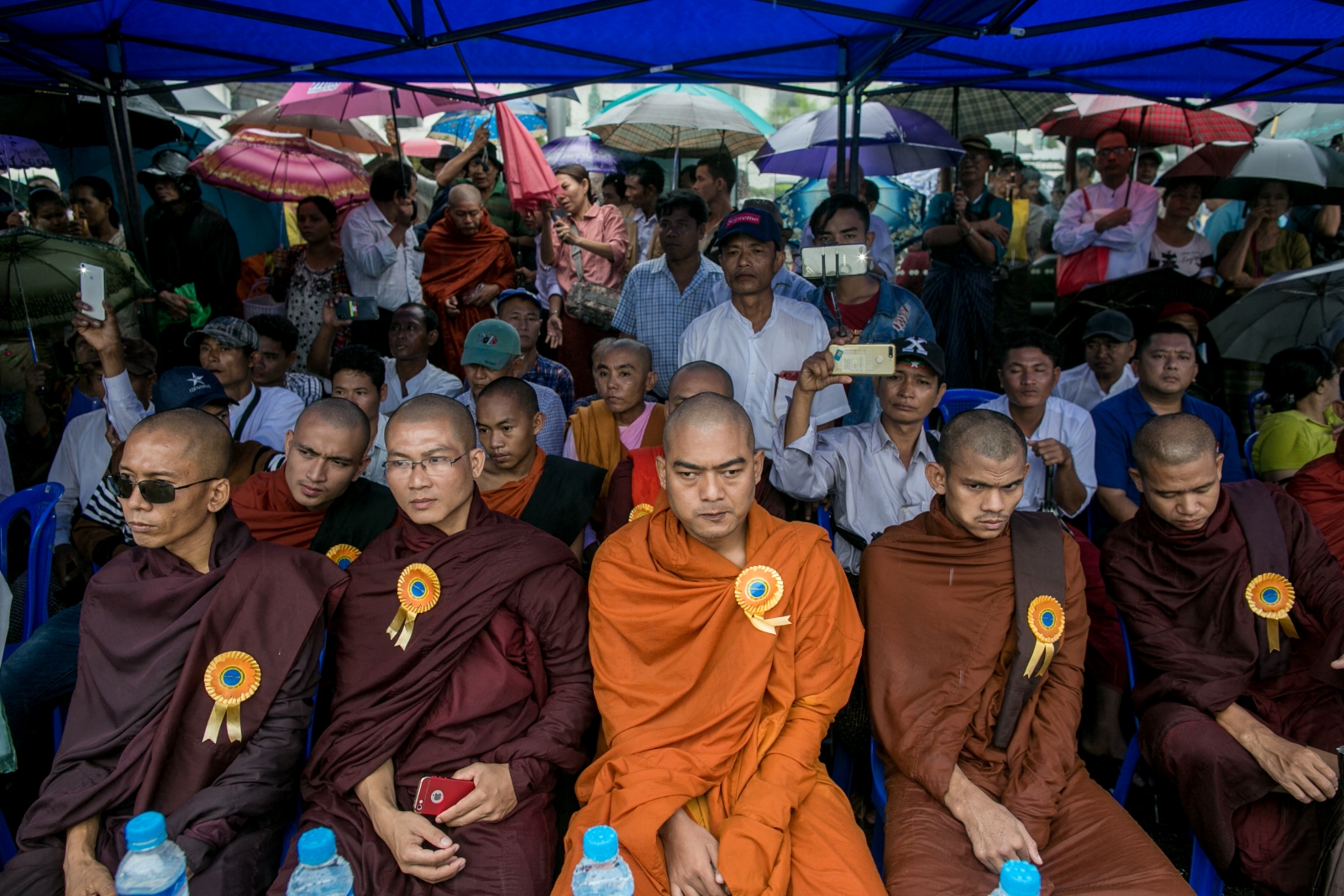An economic downturn exacerbated by the regime’s own disastrous policies is hampering efforts to recuperate loans given to businesses by the ousted civilian government.
By FRONTIER
The junta’s campaign for businesses to repay COVID-19 loans quickly has been thwarted by the economic downturn, forcing the military regime to extend the repayment term by another year.
Myanmar was one of many countries that extended special loans to businesses whose operations were badly affected by prevention measures during the COVID-19 pandemic, including lockdowns.
To ease pressure on suffering businesses, the National League for Democracy government established a COVID-19 Economic Relief Plan, under which one-year loans totalling about K200 billion were disbursed among nearly 6,000 companies at 1 percent interest starting in April 2020.
The 12 sectors given priority for the loans included garment factories, hotels, export businesses, small and medium enterprises, agriculture and fishery companies, the film industry and theatres, music and the media.
After the military overthrew the NLD in a coup in February 2021, the new junta, called the State Administration Council, began pushing for the loans to be repaid. But widespread resistance to military rule and erratic economic policies have cratered the economy, forcing the military to grant two six-month extensions on repayment in March and September 2021.
In November last year, more than two years after the loans were disbursed, junta leader Senior General Min Aung Hlaing said it was time they were repaid.
“The economy of the country will improve only if there is money in circulation. Loans need to be repaid at the fixed rate. Only when the loans are repaid, can the funds be used for other purposes. All involved need to act responsibly,” he told a meeting in Nay Pyi Taw on November 1.
However, difficulties in repaying the loans prompted the nation’s peak business body, the Union of Myanmar Federation of Chambers of Commerce and Industry, to appeal to the military council for leniency, securing another year-long extension, announced the same month. Because the loans were issued at different times, there is no uniform deadline for repayment, with payments now due three years after the initial loan was granted.
Garment factory owners have welcomed the move.
“We are facing various difficulties; we don’t get orders and power outages are increasing, so we asked for an extension,” said Daw Yin Yin Moe, whose garment factory in Yangon’s Mingaladon Township operates on a cut, make and pack basis.
However, Yin Yin Moe said she was still not sure if she would meet the new deadline in 2024 given the economic uncertainty.
During the second COVID-19 wave, in September 2020, Yin Yin Moe cut her 300-person work force to around 150 to reduce production costs. Early last year, she reinstated the workers but had to reduce her workforce again in November to just 100 employees.
“The factory has not shut down, but it is not running as normal and production is down by 50 percent. The main reason is the fall in orders,” she said.
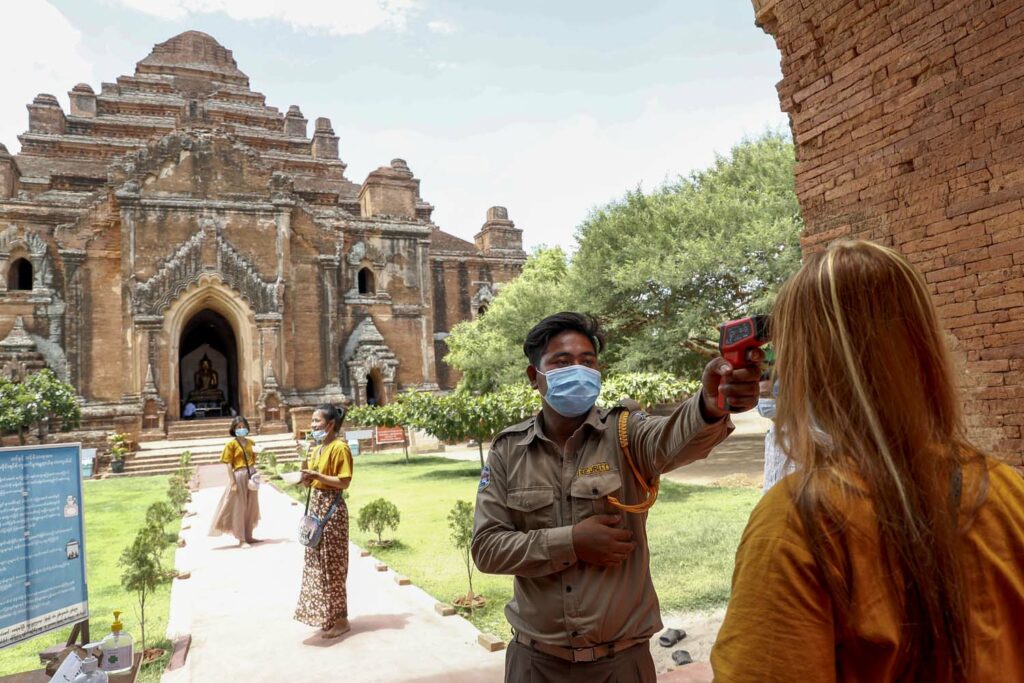
Hotels and tourism take a beating
The tourism sector was hit hard by the pandemic and then the coup, and foreign arrivals are a fraction of the volumes achieved after Myanmar began opening up a decade ago.
With foreign travellers spurning Myanmar, and widespread conflict affecting domestic tourism, most hotels have been unable to repay their loans, according to a hotelier in Bagan whose business took out a K50 million loan in July 2020.
“There are only a few Myanmar travellers,” she said, adding that lengthy power cuts were also destroying the hotel’s profits. “There are only about two hours of power each day. Some days there is no electricity. It has been getting worse in the last four months. We have to depend on a generator and are working without profit just to keep the business going.”
She said they turn on the generator three times a day – from 6pm to 12pm, 1am to 3am, and 6am to 9am. The hotel was forced to raise the rate for a room from K35,000 per night to K45,000 in order to offset generator fuel costs, which have spiked over the last year, and continue paying the employees.
“We have to raise prices because of rising costs, but it’s the customers who are hurt by this,” she said.
But the generator seems to be the only thing keeping the hotel afloat. She said around 10 rooms are occupied by guests each day, some of which transfer to her hotel after losing power at their original booking.
“Other hotels that do not have generators are sending their guests to us,” she said.
She said she believes she could repay the loan if she was permitted to pay it back in monthly instalments, but this is not an option.
“I can manage to repay between K500,000 and K1 million per month,” she said. Her final extension will expire in June this year, when the loan becomes three years old, but she’s still not sure if she can meet that deadline.
Three years at the most, says deputy minister
The junta’s deputy minister for investment and foreign economic relations, Dr Wah Wah Maung, said the SAC would definitely not extend the deadlines any further.
“Loans that are three years’ old must be repaid,” the deputy minister told Frontier, adding that once this happens, the junta will lend to other businesses in need.
“We need to disburse loans to businesses that have not yet received any assistance,” she said.
The deputy minister said the SAC will continue to help businesses that need funding support through loans provided by the Ministry of Planning and Finance, outside of the original CERP scheme.
“Support programmes for businesses will continue. Although the ministry has changed, we will continue to implement programmes for businesses,” she said, making an indirect reference to the coup.
The terms and conditions of the COVID-19 loans included a warning that legal action would be taken if they were not repaid within a year. The business would also be blacklisted by the Credit Bureau and would be barred from receiving further loans from banks, non-bank institutions and microfinance organisations.
“It is clearly stated what action will be taken if the loans are not repaid in time. Procedures must be followed according to the law,” the deputy minister said.
With many businesses that took out COVID-19 loans only managing to break even, business owners remain anxious about meeting their repayment deadline.
“Everyone knows that no businesses are okay now,” said Yin Yin Moe, from the Mingaladon garment factory.
“It would be different if I was the only one who was unable to repay the loan on time, but because all businesses are in the same situation, we must explain our plight to the relevant authorities. I don’t know what will happen next,” she said, adding that the situation for the garment industry remains grim.
“The CMP sector is not in good shape. Perhaps it’s because this is the season when fewer orders are received. One thing is for sure, compared to 2020, orders are down by about 50 percent,” she said.
A member of a UMFCCI affiliate association, who asked to remain anonymous, said actions the SAC has taken since the coup make it clear it is in “dire financial need”, but only the higher-level officials know whether the COVID loans would help offset that need.
“K200 billion is only around US$100 million at the current market price. This amount should be insignificant for the government budget. But the fact that they are asking for repayment may mean it’s a significant amount for the SAC. I can’t say exactly,” he said.
He said he expects businesses to continue to struggle to pay back the loans, particularly as the economy begins to feel the effects of the exodus of young people.
“Many have gone abroad… as the number of young workers decreases, businesses begin to decrease production. Because there are fewer people, demand will fall,” he said, adding that most businesses are in a constant “panic” over rapidly changing policies.
He said if businesses are still unable to repay their loans by the new deadlines, they would typically be blacklisted by banks and banned from taking future loans, as outlined by Wah Wah Maung.
“But I don’t know what the military will do,” he said. “Anything is possible.”


